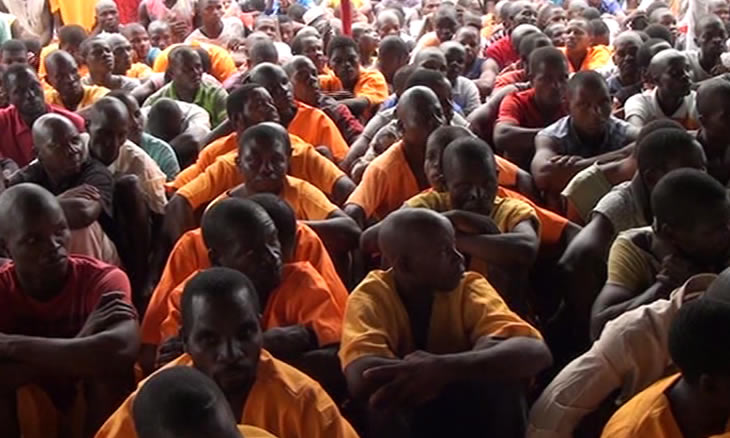Mozambique: Red Cross resumes food assistance for drought-affected families in Tambara and Machaze, ...
Serious violations of human rights in Quelimane jail – Watch

O País
Mozambican Attorney General Beatriz Buchili discovered gross overcrowding and serious violations of human rights when she visited the Zambezia Provincial Prison in the central city of Quelimane on Thursday.
The prison was built, in the colonial era, to house a maximum of 250 inmates. According to a report on the independent television station STV, currently more than three times that number – 825 prisoners – are living there. The overcrowding puts the prisoners at risk of disease – particularly skin ailments and respiratory illnesses.
To make matters worse, some of the prisoners should not be there at all, because the period of preventive detention has expired and they have not been charged with any offence. In some cases the preventive detention period expired a year ago.
Buchili declared “the law on this is very clear. Once the preventive detention deadline has expired, the suspect must await trial in freedom”.
The easiest way of creating more space in the jail would be to release those prisoners who qualify for parole. In general, prisoners who have served half their sentence, and have behaved well in jail, can be released on parole.
But in the Quelimane jail, prisoners remain in the cells even though they qualify for provisional release. This was the case, for example, with Lacerda Luis who was serving a 12 year sentence. He has served half the sentence, and on 8 October he requested early release. He told Buchili that up until now, six months later, he has received no reply to his parole request.
Buchili urged the inmates to work with staff from the Legal Aid Institute (IPAJ), who could help them overcome their difficulties, particularly in claiming their right to parole.
But the prisoners made it clear that they do not trust IPAJ. The Institute works as the defence attorney for accused people who cannot afford a lawyer. But the prisoners told Buchili that IPAJ staff make no attempt to defend them in court, and merely say to the judge “let justice be done”.
The IPAJ Zambezia provincial delegate, Antonio Gussi, denied the accusation, and said IPAJ had set up an office in the prison with a staff member on hand “to assist permanently those who need our services”.
“I know that many inmates would like IPAJ to take them out of here at any cost, but that’s not our mission”, said Gussi. “Our task is to help them master the law, so that they are aware of their rights and duties”. Loud noises of dissent from the audience, however, made it clear that the prisoners do not feel that IPAJ is representing their interests.
At the end of her visit, Buchili promised to work with Zambezia attorneys to review the legality of the detention of each of the prisoners.












Leave a Reply
Be the First to Comment!
You must be logged in to post a comment.
You must be logged in to post a comment.